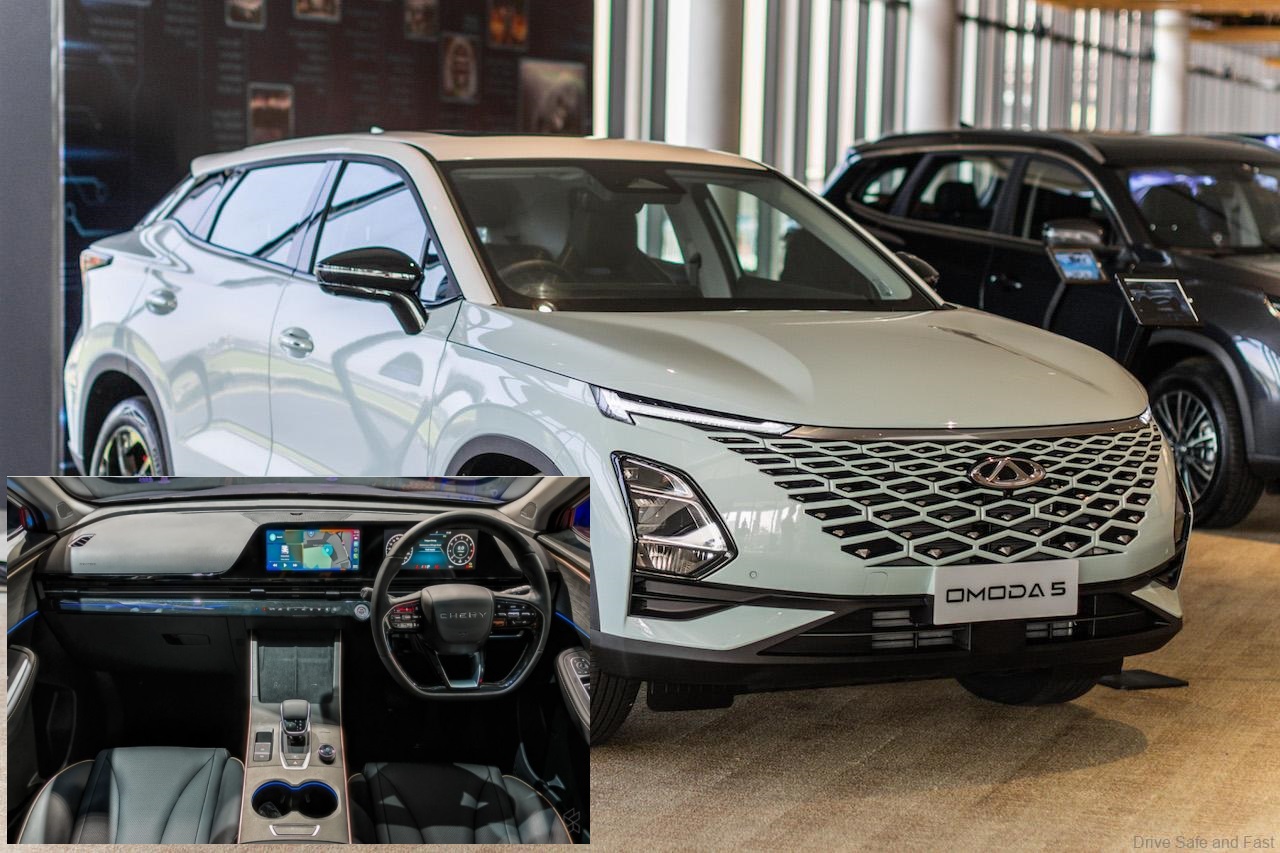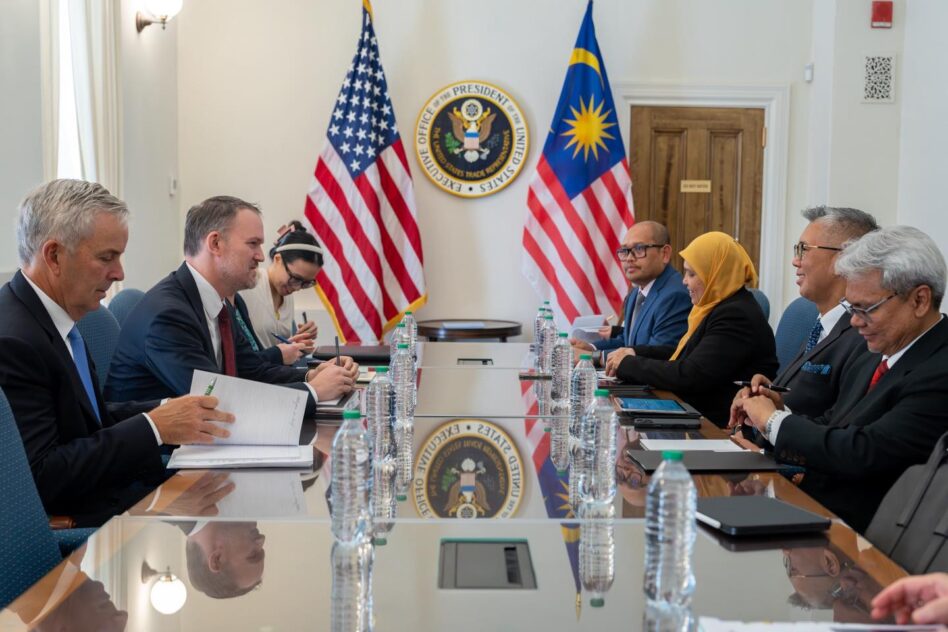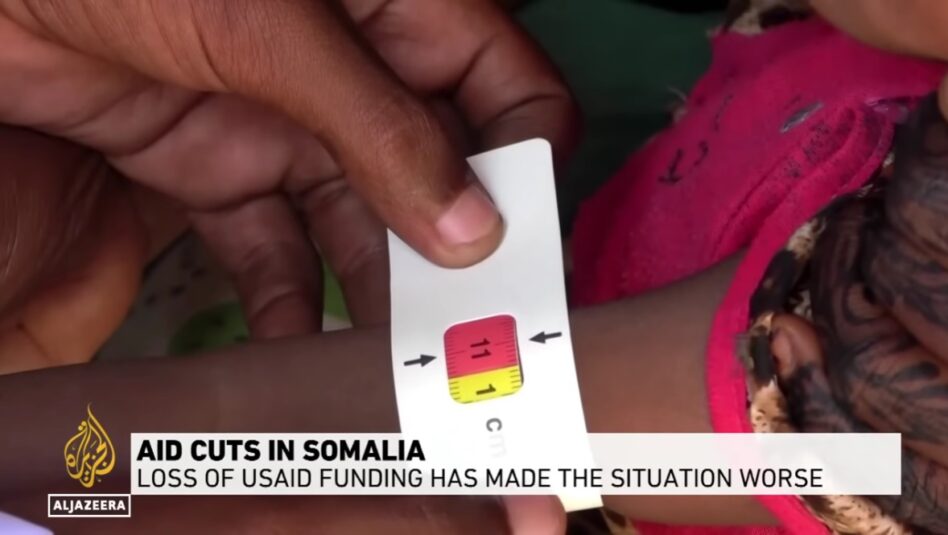“EVs (electric vehicles) catch fire easily” … “Made-in-China cars are unsafe” … “Locally assembled cars lack QC (quality control)” etc.
The above comments are generic and can be found proliferating on social media, highlighting what a multi-headed beast social media is.
On the one hand, social media provides ordinary folk with an avenue to share their opinions and vent their grouses. On the other, it has also become a platform for slander, misinformation and character/brand assassination to flourish.
This clash of purposes was again evident in the case of a widely circulated video of a lady owner of a Chery Omoda 5 claiming that the brakes were faulty.
Chery Auto Malaysia Sdn Bhd has responded with a statement claiming that the vehicle meets international safety standards. It claims that a thorough inspection has been carried out by its internal team while the vehicle was also sent to government-authorised computerised vehicle inspection company PUSPAKOM for an independent assessment.
The findings of both indicate the vehicle is safe and the brake system is “satisfactory”.
The company’s statement which was shared on automotive news portal Wap Car’s Facebook page generated a host of responses, highlighting again the hydra-headed nature of social media.
Here is a sample.
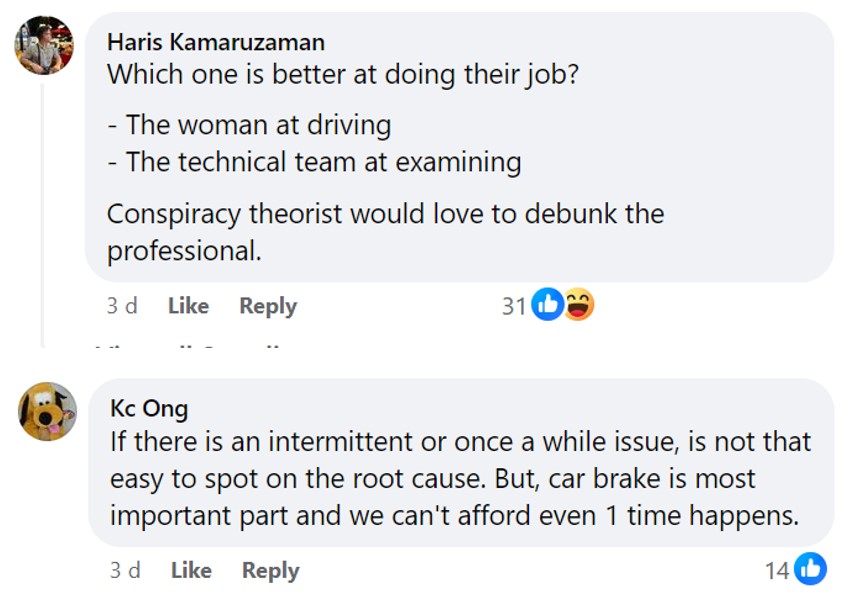

Some pointed out that the car owner was unlikely to raise a fuss unless there is a genuine problem.
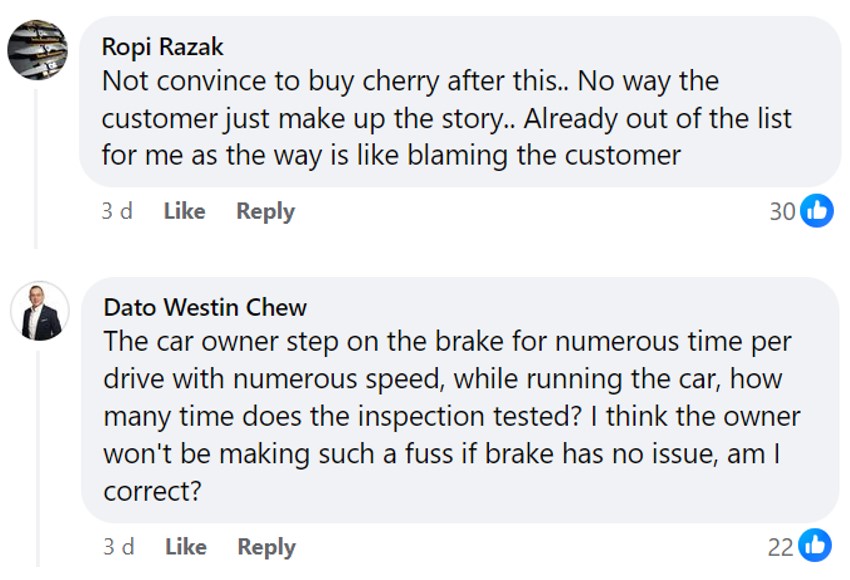
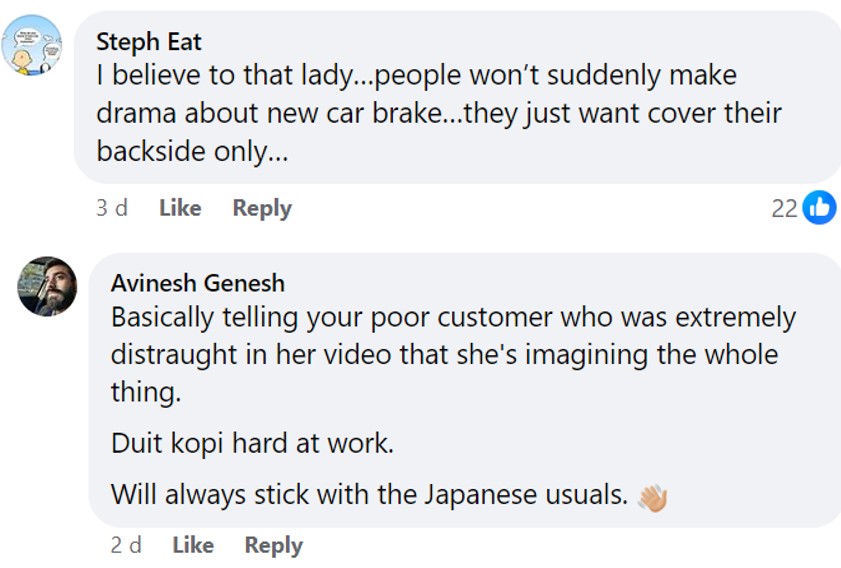

Some netizens highlighted that the model in question had been recalled in Australia due to poor brake performance.
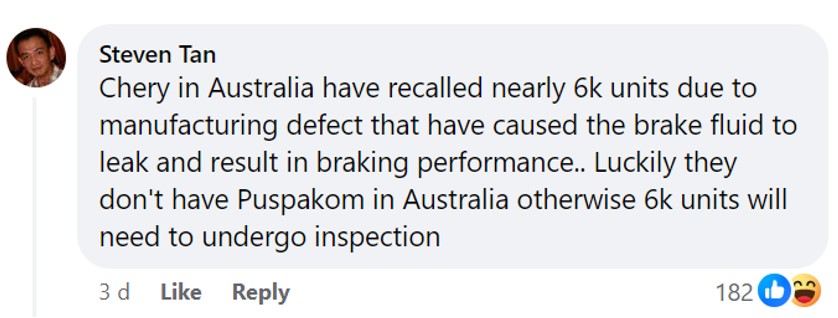
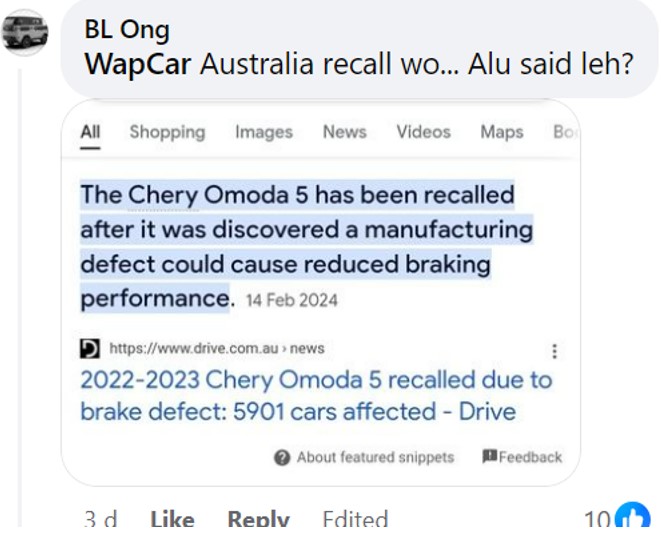
Some questioned arose as to whether PUSPAKOM’s verdict was to be trusted.


Quite a few netizens were unimpressed by the local distributor’s statement, saying it was poor PR (public relations).
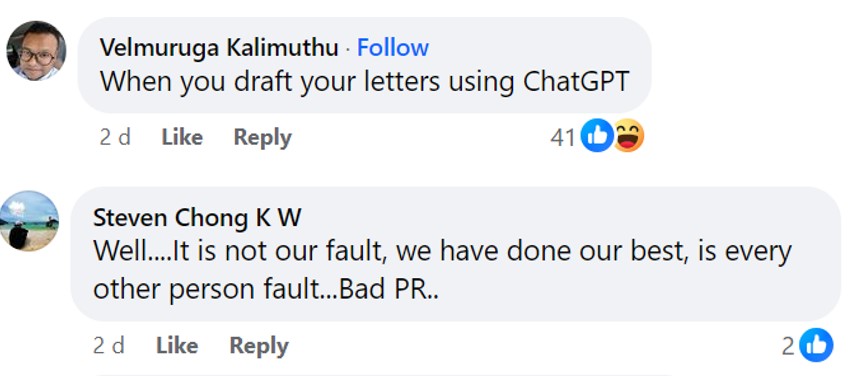
Some hinted that the episode has left a sour taste in their mouths and severely dented their confidence in the brand.
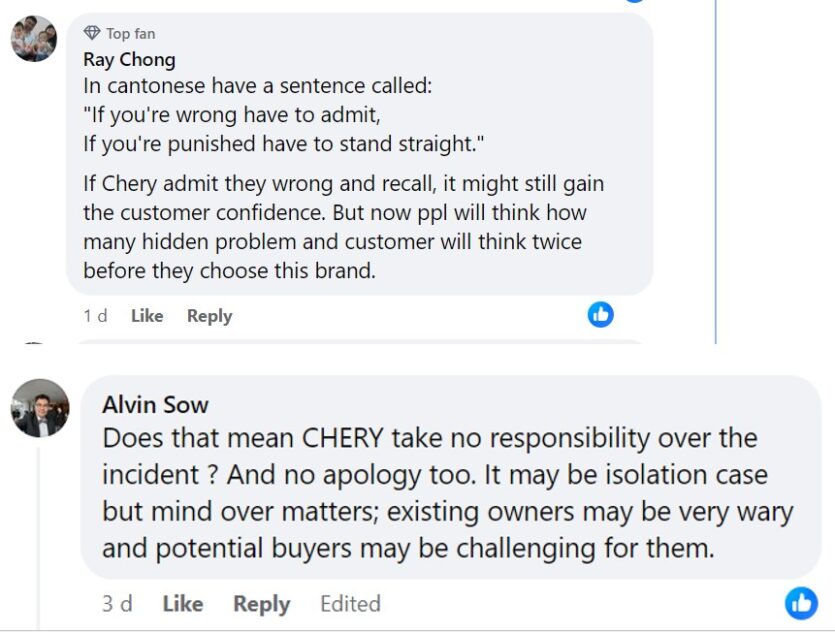

Some netizens though hit upon a novel idea.
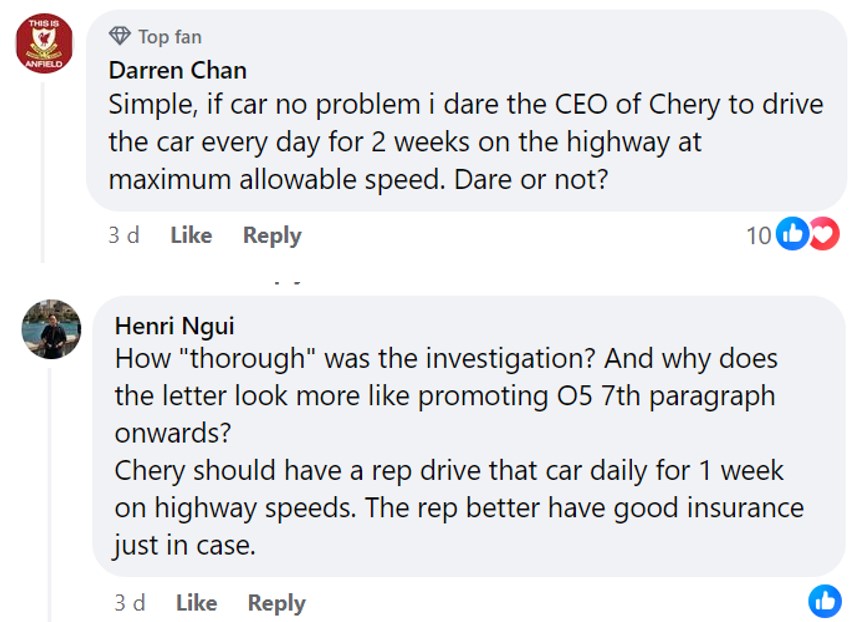
Whatever your stance may be on this particular instance, it does appear that social media has played a part in highlighting this issue to a wider audience.
Like it or not, in the age of social media, businesses wanting to safeguard their brands will need to do more than the bare minimum.
As highlighted in some comments, perhaps it would have been better to own up rather than cover-up (if there was a fault). If there is indeed no issue with the car, more has to be done to convince the vehicle owner as well as other potential customers of the safety of the ride. – April 16, 2024


